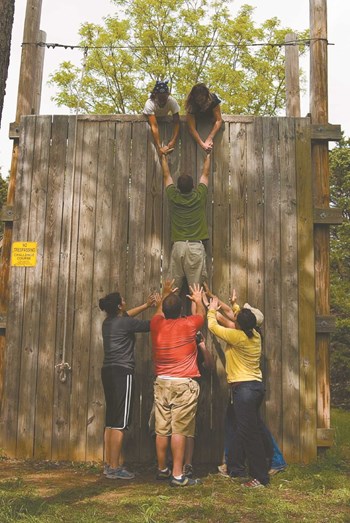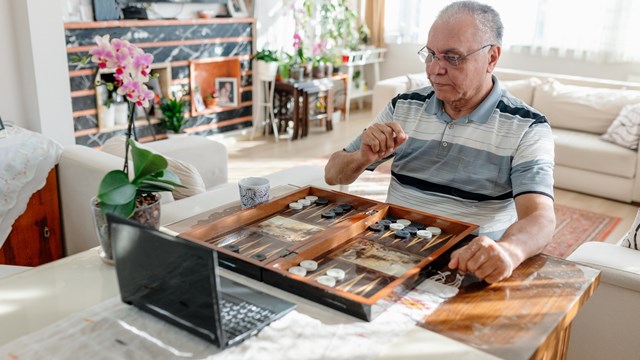
Co-ops and condos function thanks to the dedication of board members who volunteer their time and expertise to make sure their building or HOA is efficiently run and that their investment is protected. Ideally, new board members might be architectural students, who moonlight as attorneys or work day jobs as CPAs. The reality is that the majority of these selfless folks are from all walks of life. They don't necessarily have a wealth of experience that will prepare them for their new challenge, and for these well-rounded homeowners, basic board training can be invaluable.
The responsibility for training a new board member is essentially the responsibility of the new board members themselves. They must acquire the knowledge and skill to get the job done effectively. However, the new members should not be left to self-teaching alone, it’s vital that veteran board members help out as well.
Let’s take a look at what makes a good board member, and some things that the newbies and the old-timers can do to educate one another.
The New Class
“Generally people who choose to run for the board want to help their community. A board should have a mix of people with some business experience, financial expertise, management, contract experience, and good communication skills. At times we've pursued people to try to get them to volunteer because we needed specific skills, but overall we like people who are willing to be part of a team, and who aren't self-serving. We want people who are willing to listen, to communicate, contribute ideas and discuss alternatives, and who bring some thought and leadership to the group," advises Mike Jacobs, president of the board at Hamilton Woods Condo Association in Basking Ridge.
Marvin Rothenberg, a board member at The Plaza co-op in Fort Lee thinks that good board members are vital to any organization. "People who can work with others and deal with issues rather than personalities" are key, he says. "There’s nothing wrong with having disagreements on issues. I think that it’s very helpful to have people on boards who have some corporate experience and have learned to deal with other people and having give-and-take,” Rothenberg says.
Ed Brozek, who has served as a condo treasurer at his New Jersey community, notes that a top attribute for any new board member is political acumen. He says that “you get a lot of conflicting views and attitudes, ranging from people who say 'I just paid my quarterly condo dues and I don’t want to know anything—just make it work' to the other end of the spectrum where people are engaged and involved and make recommendations. It's important to be able to communicate clearly without offending people."
In addition to character and initiative, a new board member’s learning curve can be shortened by studying the HOA's own records. “It's imperative for board members to conduct productive meetings, whether open or executive,” says Tony Nardone, president of Dovan Management Group, LLC in Bloomfield. “New board members should also ask a lot of questions, and read the past six months meeting's minutes. Although there is always a transition phase, this can be shortened by doing the things I just mentioned.”
Bringing New Board
Members Up To Speed
1. Study...Study...Study
If this is the first time you’ve been elected to a board, the most important thing you need are your reading glasses. You will have to plow through literally piles and piles of pages. Studying the minutes of the last several board meetings is a good way to start; this will bring you up to speed with everything that has demanded the attention of the board and the property manager.
Other papers you should study intently are the governing documents. These documents include the proprietary lease for co-ops, or the declaration of covenants, conditions and restrictions, or CC&Rs for short, for condos, the bylaws, and the house rules. The bylaws are especially helpful.
“They should at least know what the governing documents are,” says Irwin H. Cohen, a property manager with Manhattan-based A. Michael Tyler Realty Corp.
"I learned the hard way that if anybody was going to run for the board, they should look into the various government documents first and get an understanding of the bylaws and the house rules in the case of co-ops and proprietary lease, the financial reports, and the various laws that govern things," says Rothenberg. "It was baptism by fire. Within two years, the group who was against what that manager had been doing took control of the board, and we all learned an awful lot together."
2. Wealth of Info Available
Every veteran board member will tell you that when they were new they felt a little lost at their first couple of meetings. They quickly discovered though that the road has been well-traveled. There are many resources to turn to for help, starting with some organizations whose mission involves aiding co-op and condo boards.
The Community Associations Institute's New Jersey chapter (CAI-NJ) has a website loaded with helpful information, and offers seminars from time to time to help boards run their associations more effectively. The Institute of Real Estate Management (IREM) maintains two chapters in New Jersey, and also serves as a clearinghouse for information and HOA educational resources.
Back issues of The New Jersey Cooperator, with articles on every conceivable topic that might cross a new board member’s attention, are available and free of charge on the website, www.njcooperator.com.
3. Check Your Ego At The Door
Being on a board of directors can be a heady, ego-gratifying experience. But that doesn’t mean board members should comport themselves like Donald Trump at meetings.
At the end of the day, board members are there to serve their fellow unit owners—their friends and neighbors—not to rule over them with an iron fist. The politics of the job are almost as crucial as the business acumen. “When you’re involved in a community association, it’s basically a mini-government,” says Richard Herzbach, an attorney with Certilman Balin Adler & Hyman in East Meadow, New York. “You’re an elected official. You should listen, and get a sense of what the community is all about and what is cares about.”
“One thing I’ve seen over the years: board members get elected, and the power goes to their head,” continues Herzbach. “They think they can run the building without the consent of the other board members or the community. That always creates situations.”
Sometimes, of course, boards do have to rule against the vocal wishes of some shareholders or unit owners—especially when it comes time to raise maintenance fees or conduct assessments for repair work. The key is to always remember to maintain a connection to the community—board members are residents, too.
The Role of the Veteran
1. As a Talent Scout
New board members come in all proverbial shapes and sizes. Board vets recommend that veteran board members assess what talents the newcomers bring to the table. A key to a successful board is to figure out what everyone's skills and qualities are and put those to the best use.
“While concrete credentials and professional expertise are definitely valuable,” according to Rimma Nielsen, who has presided over Woodland Lake, a condo association in Randolph, "It's more a matter of the person being approachable and getting along with people. You have to be able to take and give criticism, and I think that's part of anybody's job description. It really doesn't matter what you do during the day to make your money. It's just that if you want to volunteer your time and services, you get trained on the job and you run with it."
2. Become a Mentor
"Mentoring new members is certainly a good idea," says Rothenberg. "Somebody gets to the board, and maybe they don't realize they ought to read all the governing documents. It's helpful for someone to tell them that and show them what they ought to know. You don’t want to scare people off from serving on a board by saying ‘This is a full time job and you better learn all this stuff.' But at the same time you don’t want to just say 'Come on up, you’ll get elected, and you don’t have to do anything.' You have an obligation."
3. Utilize Your Talented Resources
When President Barack Obama has to make a decision about the war in Afghanistan, he doesn’t take a plane to Kabul, he reads reports and listens to presentations from key people. He then makes up his mind. Ideally, a board should function the same way. Management pros and long-time board members alike agree that proper delegation, combined with guidance from the property manager can help the board serve in an executive rather than an administrative function.
This might not sound like it has much to do with training the new kids on the block but it does. A well-run machine alters perceptions, inspires newcomers, and makes serving on a board more rewarding. When the role of the board member takes the form of ‘Gee, I have to do all the work myself,' disenchantment and burnout tend to follow. By spreading the responsibilities, more owners are likely to volunteer for board positions.
Expert Advice
So what final words of advice do board veterans have for newcomers?
"You’re always learning something," says Rothenberg. "The real key is being interested in serving."
Ask lots of questions and listen to the other board members to understand how they got to the point they're at,” says Nardone.
Serving on the board "is just a great opportunity to influence the direction of your community," says Jacobs. "My advice to people is to come with an open mind. This is an opportunity to make a contribution and truly be a valued addition to their community."
Greg Olear is a freelance writer, novelist, and a frequent contributor to The New Jersey Cooperator. Additional reporting by David Chiu.






Leave a Comment